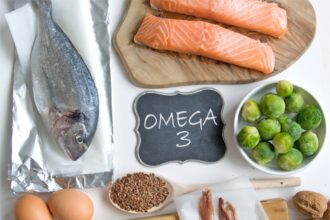While autumn is a time to savor hearty dishes and enjoy the various flavors of the season, it’s also crucial to prioritize food safety. As temperatures drop and outdoor festivities become more common, the risk of contracting foodborne illnesses that cause food poisoning and potentially serious health complications increases.
In this article, we’ll explore essential fall food safety tips to help you and your loved ones enjoy your fall season without the worry of foodborne health issues.
Wash Your Hands
Handling food safely is the foundation of foodborne illness prevention. Wash your hands with soap and water before and after handling food, especially when working with raw meat, poultry, or seafood. “Washing your hands often and correctly while you’re cooking can help prevent cross-contamination,” notes the Centers for Disease Control and Prevention (CDC), “your hands carry germs you can’t see, and these germs can be introduced to your food while you are preparing it.”
Avoid Cross-Contamination
There is often a wide array of dishes being prepared simultaneously during large fall holidays like Labor Day and Thanksgiving. To avoid cross-contamination, keep raw meats, poultry, and seafood away from ready-to-eat foods.
Use separate cutting boards, utensils, and serving platters for different food items, and sanitize them between uses.
Prepare the Turkey Thoughtfully
Turkey is often the Thanksgiving centerpiece and deserves to be treated as such! When handling and cooking a turkey, take extra precautions to ensure its safety.
Thaw a frozen turkey in the refrigerator, not on the countertop, and cook it to an internal temperature of 165°F (74°C). “This applies to your turkey and any other meat that you might be cooking for the occasion: you need to make sure that your meat gets hot enough to kill off any pathogens that might be hitching a ride,” note food poisoning lawyers at The Lange Law Firm, PLLC, “If you don’t get your meat hot enough during the process of cooking, those pathogens can survive and potentially cause food poisoning.”
Be cautious when stuffing the bird; it’s safer to prepare stuffing separately to ensure thorough cooking!
Safe Storage
Proper food storage can help prevent foodborne illnesses. Refrigerate perishable items as soon as possible and keep the refrigerator at or below 40°F (4°C). Store raw meat, poultry and seafood on the lowest shelf to prevent any juices from dripping onto other foods and causing cross contamination.
Use a food thermometer to ensure your refrigerator and freezer are at the recommended temperatures.
Canning Safety
Many people enjoy preserving the flavors of fall through canning. Whether you’re making jams, pickles, or other canned goods, follow safe canning practices. Use sterilized jars, follow recommended recipes and processing times and store canned items in a cool, dark place. Avoid direct sunlight and high temperatures.
Thoroughly Rinse Produce
Fall is known for apples, pumpkins and a variety of leafy greens to enjoy. Before eating or cooking with produce, rinse under running water, even if you plan to peel it. Opt for a fruit and vegetable wash to help eradicate dirt, bacteria and any pesticide residue that may be present.
Safe Apple-Picking
Apple picking is a beloved fall activity. While enjoying the orchards, be mindful of food safety. Wash your hands before handling apples and use sanitized, designated picking tools if provided. Inspect apples for any signs of spoilage and only pick what you plan to consume or store properly.
Leftover Storage
With hearty fall meals come delicious leftovers. To prevent foodborne illness, refrigerate or freeze leftovers within two hours of serving, ideally as soon as possible. Use shallow containers to store leftovers, allowing them to cool quickly. Consume leftovers within a few days, and reheat to 165°F (74°C) before eating.
Outdoor Grilling Safety
Autumn is a great time for outdoor grilling, but it’s essential to maintain proper food safety practices. Ensure the grill is clean and free of residue from previous cookouts. Use a food thermometer to check the internal temperature of grilled meats and cook them to the recommended safe temperature.
Enjoying Fall Foods Safely
Autumn is often synonymous with delicious food and by following these food safety tips, you can enjoy the season with confidence. Foodborne illnesses can quickly put a damper on your fall festivities, but with proper handling, storage, and cooking techniques, you can reduce the risk of foodborne illness to ensure your meals are not only delicious but also safe.
Whether you’re hosting a family gathering or attending a potluck, spread awareness about these essential food safety practices to protect yourself and your loved ones.










